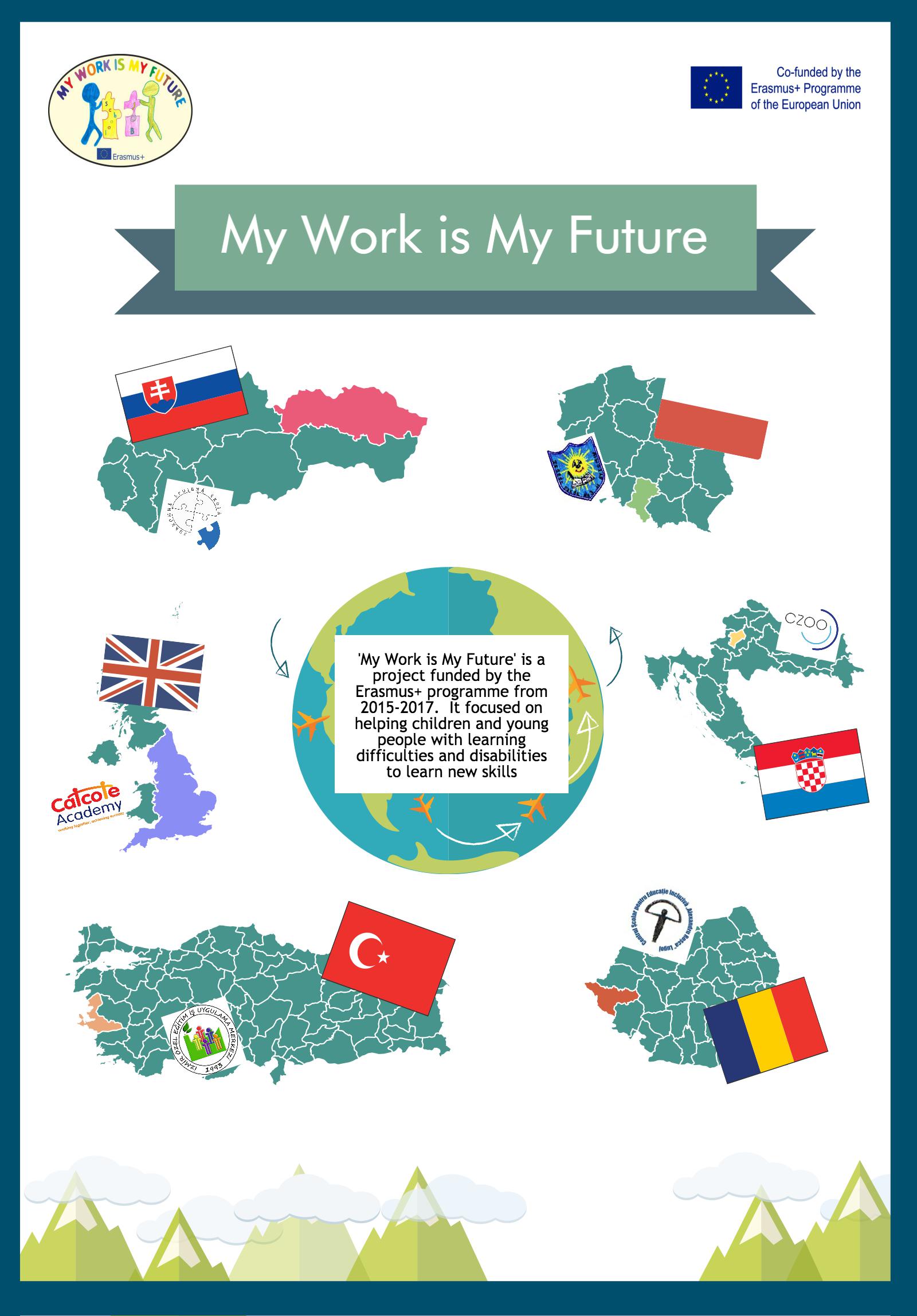
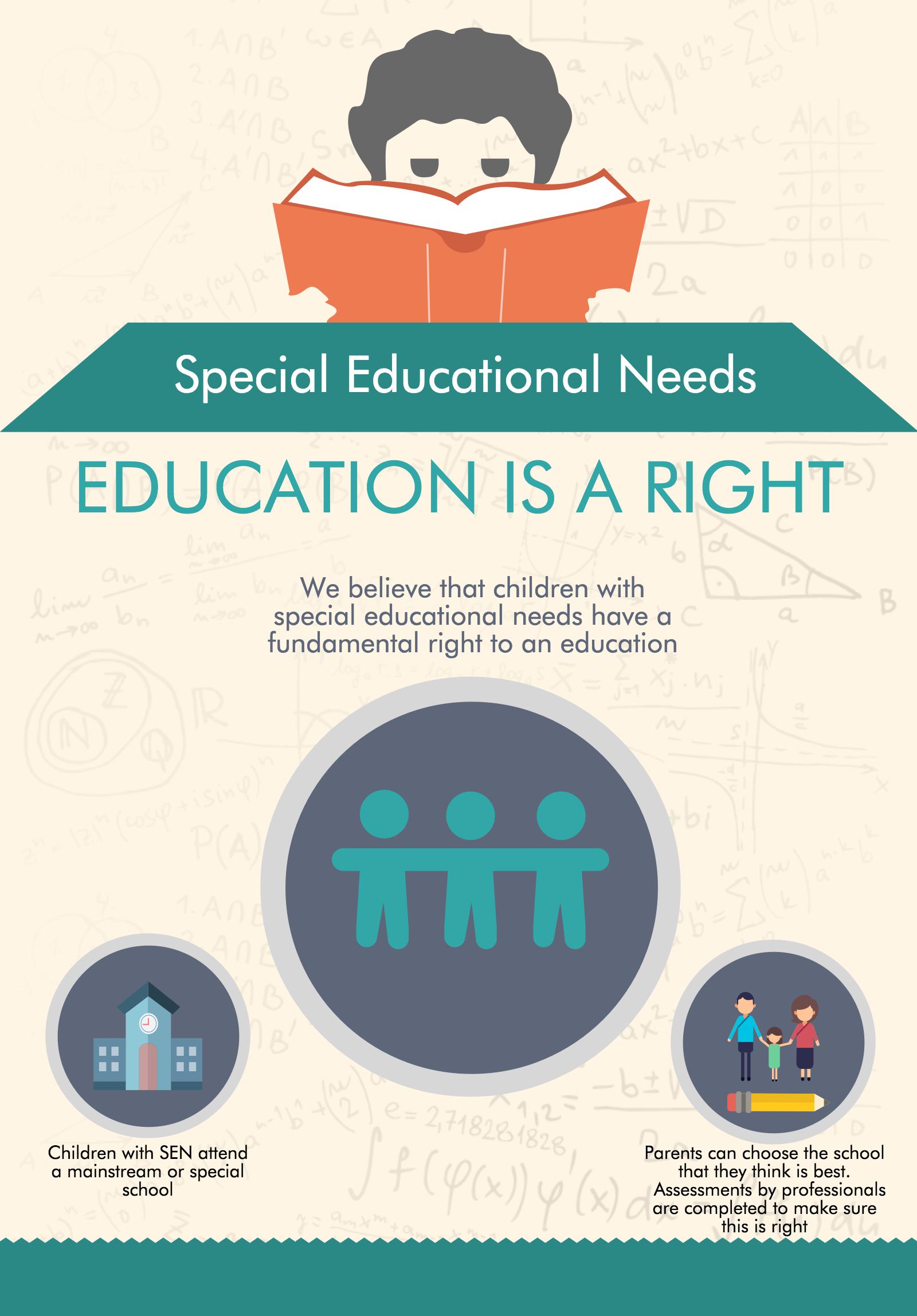
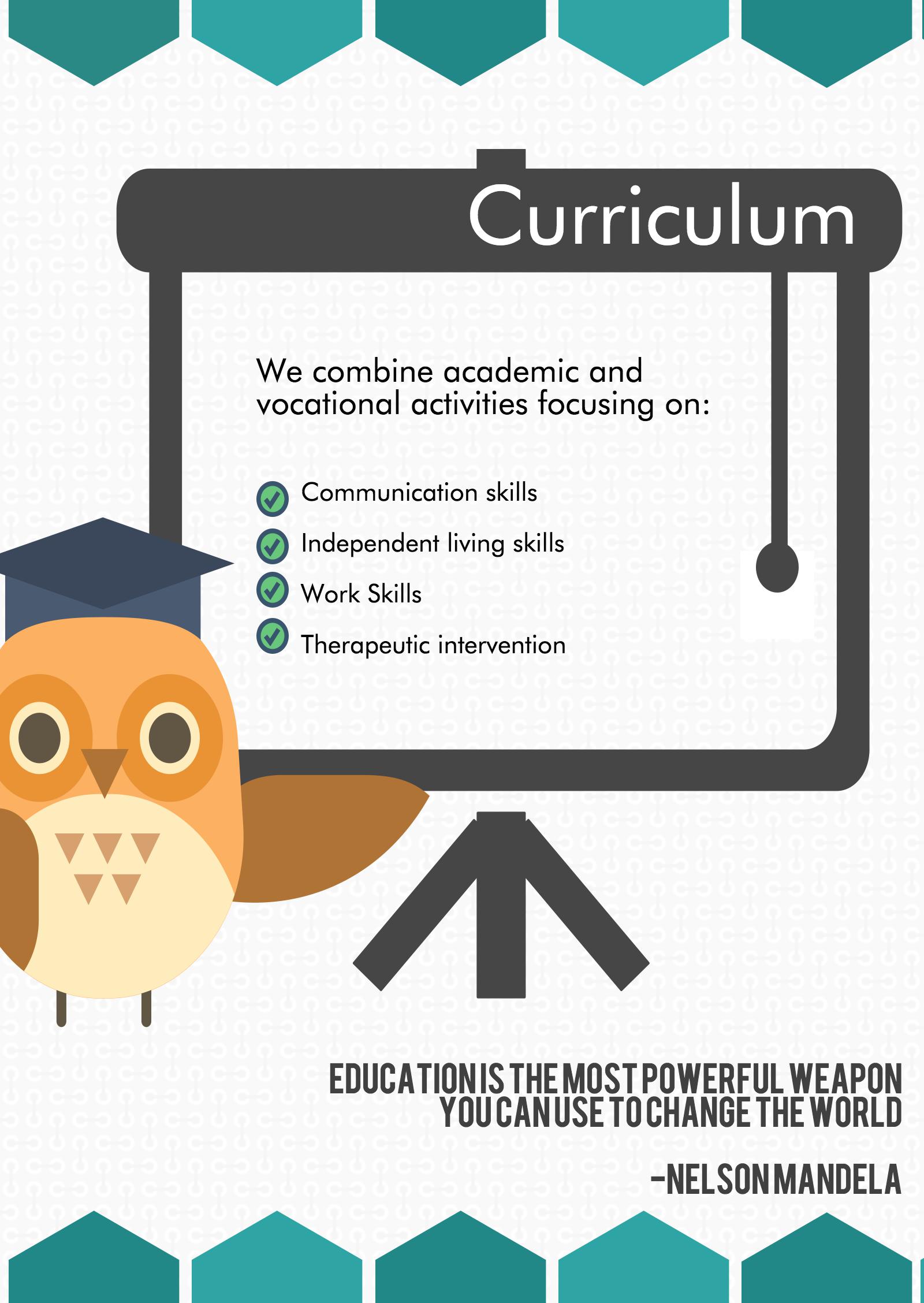
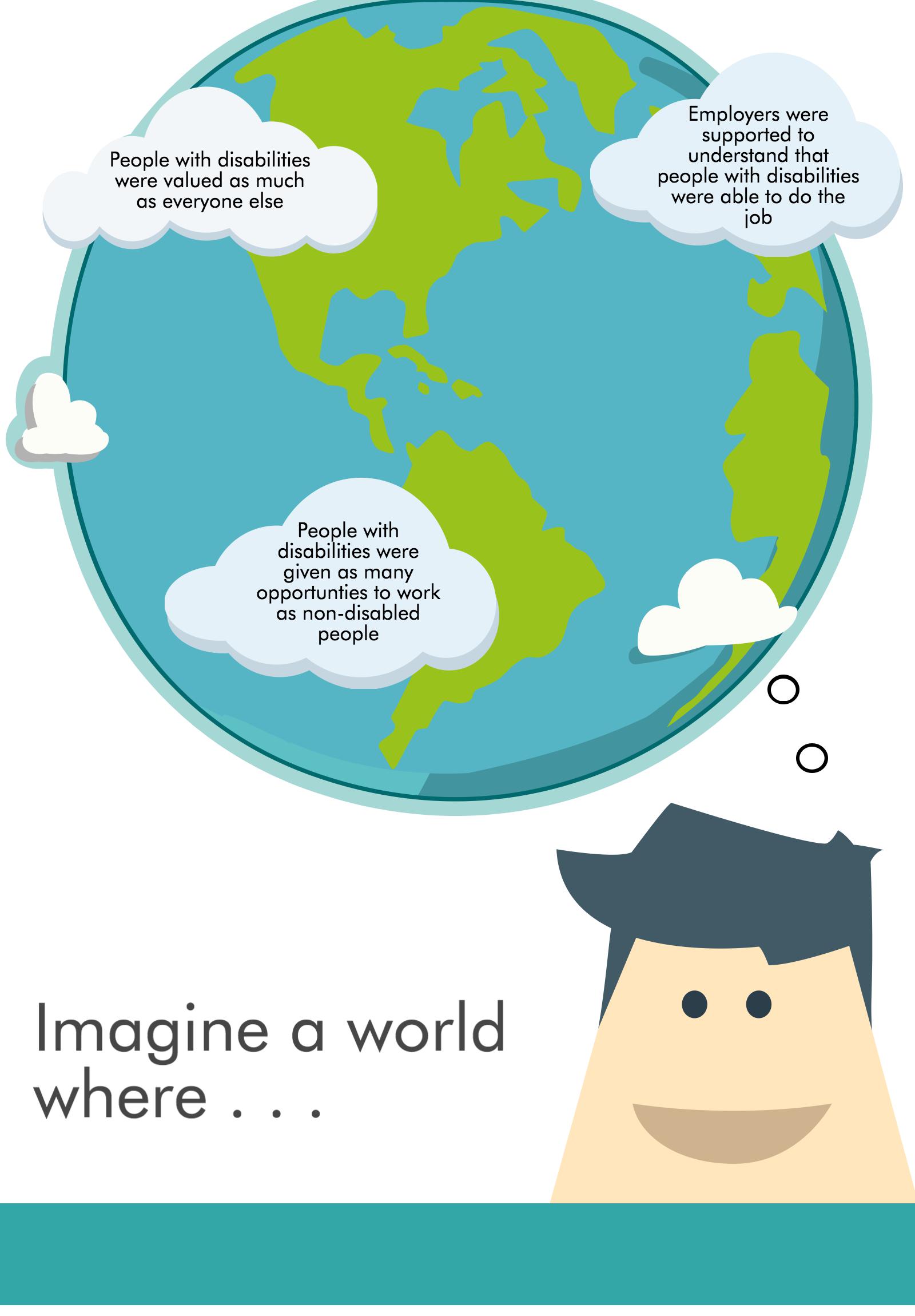
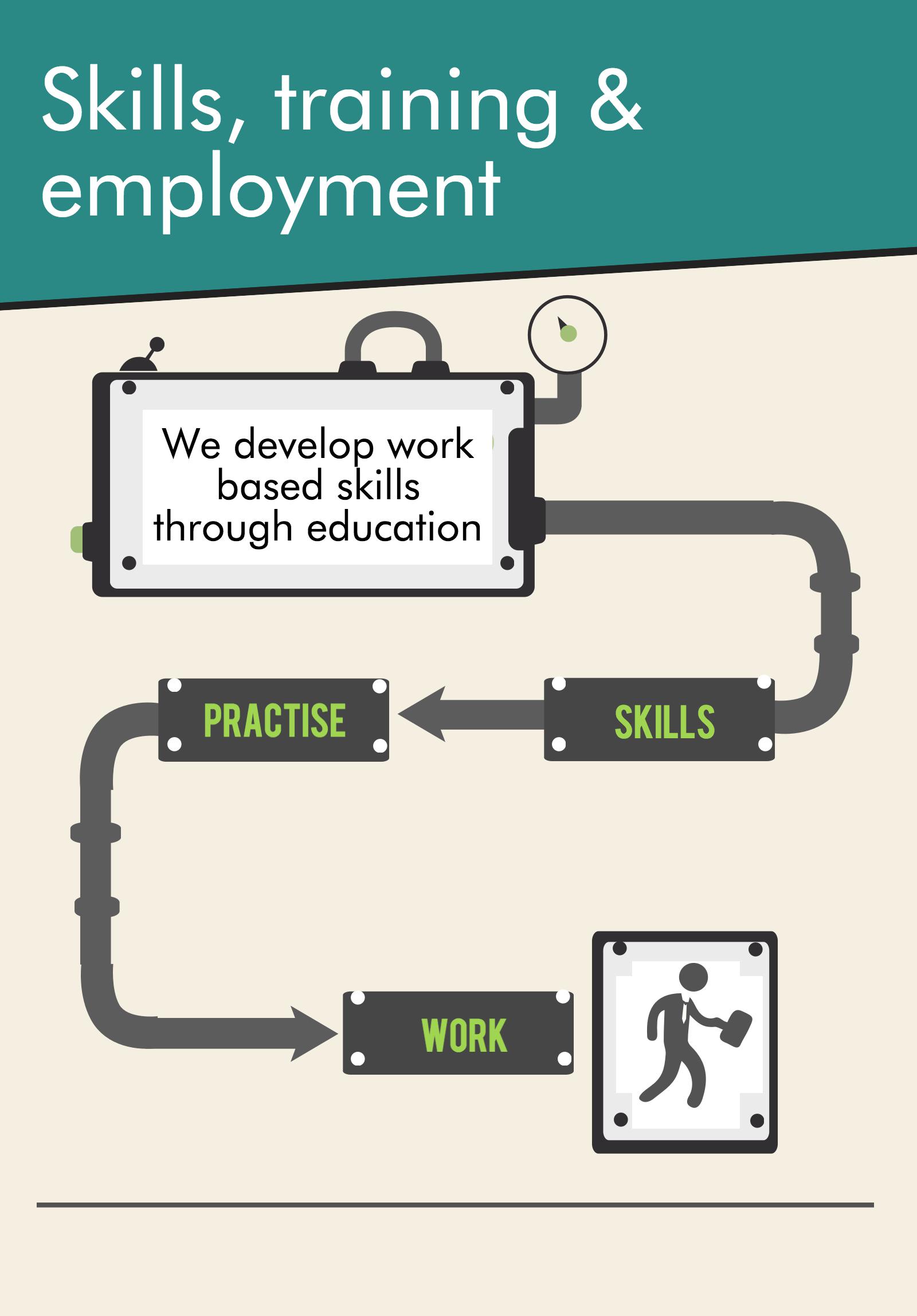
My Work is My Future
2015-1-SK01-KA219-008905-2
Comparison and Analysis
of Educational Systems
My Work is My Future is a schools partnership project under the Erasmus + programme funded by the European Union. The project ran between September 2015 and September 2017 and involved special educational needs schools in Slovakia, Croatia, Poland, Romania, Turkey and the United Kingdom.
The project focused on developing pre-vocational and vocational skills in children and young people with a range of special educational needs, including learning disabilities and Autism. The development of such skills is crucial in young people making a successful transition to adult life, including reducing community isolation and improving employment prospects.
A wealth of good practice, teaching approaches and programmes of study were showcased during visits to each participating school and through Twinspace, the online portal for the Erasmus programme. A particular focus was the development of video models and picture process schemes to be used as a tool to improve independent learning. These resources are available to view and download from the project website, which can be accessed in the languages of all participating countries:
www.myworkismyfuture.eu
We also shared information about the structure and organisation of the educational systems in our own country, including for children with special educational needs. This exchange of information was very valuable to professionals who often feel that they are working in isolation and highlighted that there are many common features of our values and ethos towards supporting students, despite significant differences in the resources available to provide this.
Educational Systems of participating countries
Information about the structure and organisation of the educational systems in the countries involved in the project was shared during the first short term joint staff training. These presentations highlighted several similarities in how education and learning are delivered.
There is an element of compulsory education split into stages according to age e.g. nursery, primary, secondary etc. There is often a formal exam at the end of the later stages, the result of which determines what a student does next e.g. further education, apprenticeship, employment etc.
Each of the schools participating in the My Work is My Future project caters for children with special educational needs, including those with Autism and learning disabilities. Staff are experienced and knowledgeable about supporting children’s learning and are committed to provided meaningful learning opportunities for all their students.
All of the schools focus on helping their students to develop skills for adult life according to their ability, and have established programmes to teach pre-vocational and vocational skills in workshop settings within our school environment, and through working with local organisations. We share the same ethos of helping our students to achieve as well as they can.
Children with special educational needs and disabilities
Each country believes that children with special educational needs and disabilities have a fundamental right to receive an education that is meaningful and productive. This is achieved through both mainstream and special schools.
Children with more moderate special educational needs or disabilities usually attend mainstream schools which provide extra support to enable them to access learning. They are able to keep pace with the curriculum alongside their peers who do not have any additional needs and make progress.
Those with more severe difficulties will attend a special school. Some schools in the project specialise in the type of needs they can meet e.g. the Slovak school caters for children with Autism. Other schools have children with a broader range of needs, including behavioural difficulties and physical disabilities.
Special schools have a greater focus on developing practical, communication and social skills through modified teaching approaches, more skilled and experienced staff and provide access to additional therapies.
Curriculum
All countries focus their curriculum on developing functional skills in children and young people with special educational needs. There is a shared aim of providing practical and meaningful work experience and/or training as children approach adulthood. The curriculum for each student is individually tailored to their needs but will usually contain core elements such as Maths. The content of the curriculum is adapted to help students to learn at their own pace and in their own style.
For those with more severe needs, the focus is on developing independent living and self-help skills. In the UK, there are clear frameworks and qualifications to build this around with students being awarded certificates for each level they achieve. In other countries, the school has more flexibility in deciding what to teach students and how to deliver it, although this can mean that each school takes a different approach.
Skills, employment and training
Education for young people with additional needs is extended in each country, recognising that it may take more time for them to become proficient in different areas. For young people with mild to moderate learning difficulties or disabilities there is an emphasis on vocational learning, opportunities to develop and practise skills and then apply them in a real workplace setting. Each school has developed its own approach to providing opportunities for students to experience work, including fulfilling contracts to make items for use in local workplaces e.g. a workshop for making galoshes in Turkey to building partnerships with local professions to train young people at ‘assistant’ level in Croatia.
The ultimate aim is for the individual to secure paid employment however, in all countries the opportunities for doing so are limited. A recent development in the UK is the introduction of Supported Internships, an education programme which focuses heavily on working in a real business which gives young people the chance to develop and demonstrate their skills. All of the countries involved in the project promote the employment of people with additional needs but employers and businesses are not supported to understand that these people are be a valuable asset for their workforce and often bring skills that they had not considered e.g. punctuality, worth ethic and perfectionism. With the exception of the UK, there is a Government backed quota system which penalises employers who do not provide opportunities for those with learning disabilities. However, in most cases employers would rather pay a financial penalty than invest time and effort in exploring how they can meet the quota.
There are some examples of excellent practice at the individual schools involved in the project. In Croatia, the school has a well-established Supported Employment Monitoring Service which provides support to help their students find employment when they have finished their education. They have produced checklists of competencies for a range of professions and these are used to demonstrate an individual’s skills in that area of work.
In the UK, the school has simulated a Coffee Shop environment to provide sheltered and supported work experience for children from the age of 14 years. This has recently been extended through the opening of a café in the local art gallery to provide the next step in learning how to work. Local businesses in this sector are then approached and supported to provide placements in a real life setting.
The European Commission support for the production of this publication does not constitute an endorsement of the contents which reflects the views only of the authors, and the Commission cannot be held responsible for any use which may be made of the information contained therein.
